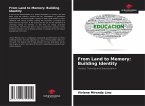Two events make the history of Norfolk in the 1950s remarkable: the voracity of its attack upon urban blight, and the ferocity of its resistance to school desegregation. One of the first cities in the nation to initiate large-scale redevelopment efforts, Norfolk was the chief battleground for court-ordered school desegregation. The author shows how Southern cities used their powers of redevelopment, city planning, and school administration to resist and delay school desegregation. He notes that this occurred in three distinct phases. These findings present a breakthrough in urban studies and school desegregation research. The author establishes that the history of school desegregation began much earlier than commonly thought, with almost a decade of planning, redevelopment, and urban renewal initiatives; and that school boards and administrators were only minor actors in a cast that included mayors, city councils, state legislators, planning commissioners, redevelopment authorities, and other public officials.
Hinweis: Dieser Artikel kann nur an eine deutsche Lieferadresse ausgeliefert werden.
Hinweis: Dieser Artikel kann nur an eine deutsche Lieferadresse ausgeliefert werden.








